In recent years, Skaza has become synonymous with circular management in all segments of its operations. Our sustainable policy; first and foremost, revolves around the circulation and reuse of materials, as well as ensuring sustainable management of electricity and other types of energy, of our transport and logistics, of our materials and, last but not least, by contributing to sustainable household habits with our products.
Download our e-book about the sustainable materials we use in our manufacturing process >>
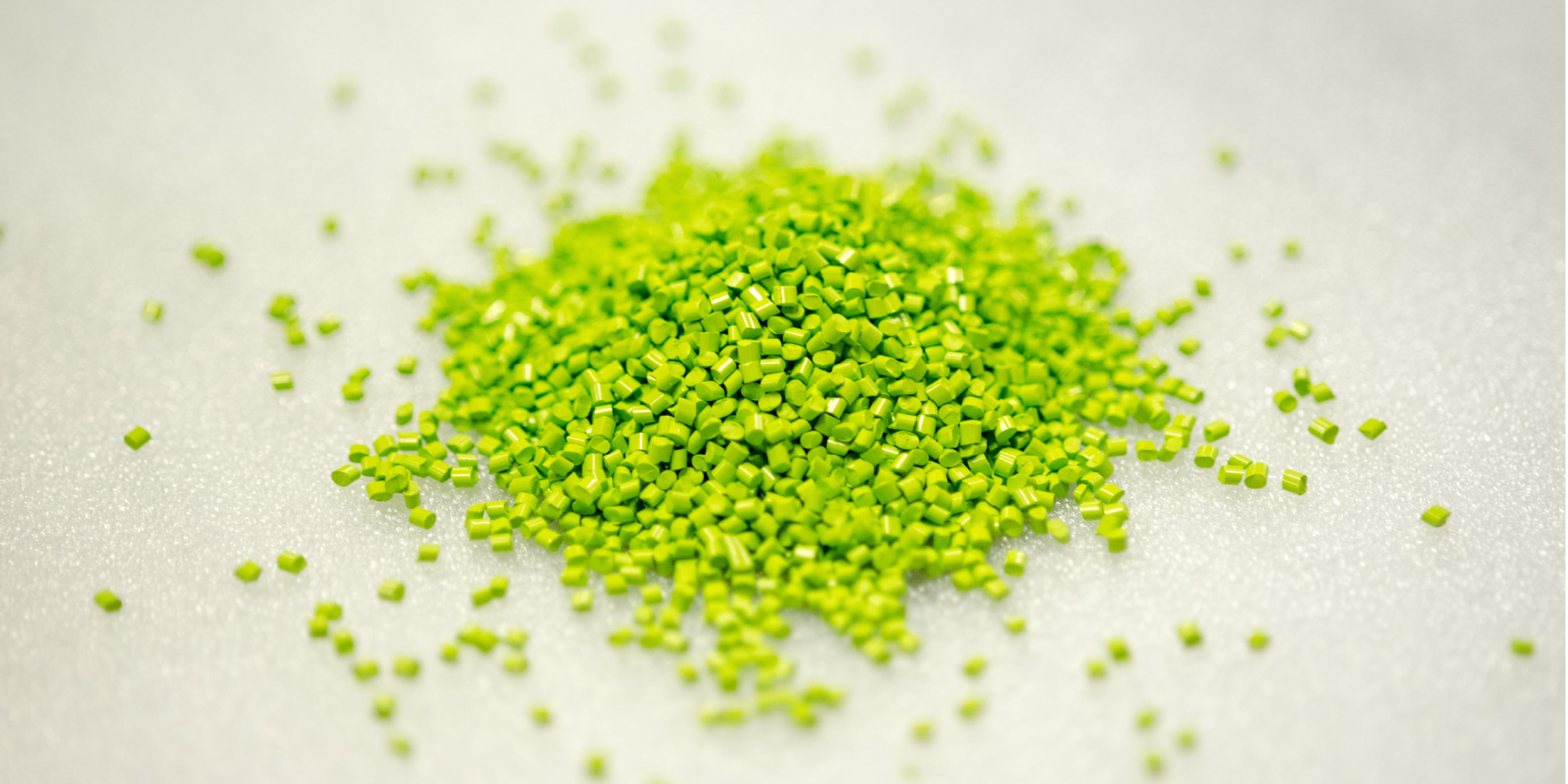
How is the sustainable policy noticed in materials we use?
The company uses three types of polymeric materials (pictured below).
We incorporate two groups of sustainable materials in manufacturing our own brand products: recycled polymers for our Bokashi Organko composters and bio-based polymers (bio-based materials) for our sustainable plastic tableware and the innovative Pick & Go picnic set. Products from the Viva 1.0 line, which were made from conventional oil-based polymers, have been updated and upgraded in to the Viva 2.0 line, both of which are made entirely from bio-based polymers.
All our products are suitable for re-use and recycling after being used and do not pollute or impact the environment when properly sorted and disposed of. The products have a Mobius loop embossed on the bottom, which indicates that the product is recyclable, while the number in the middle gives the information about the material and within which group it is separately collected and processed into a new product.
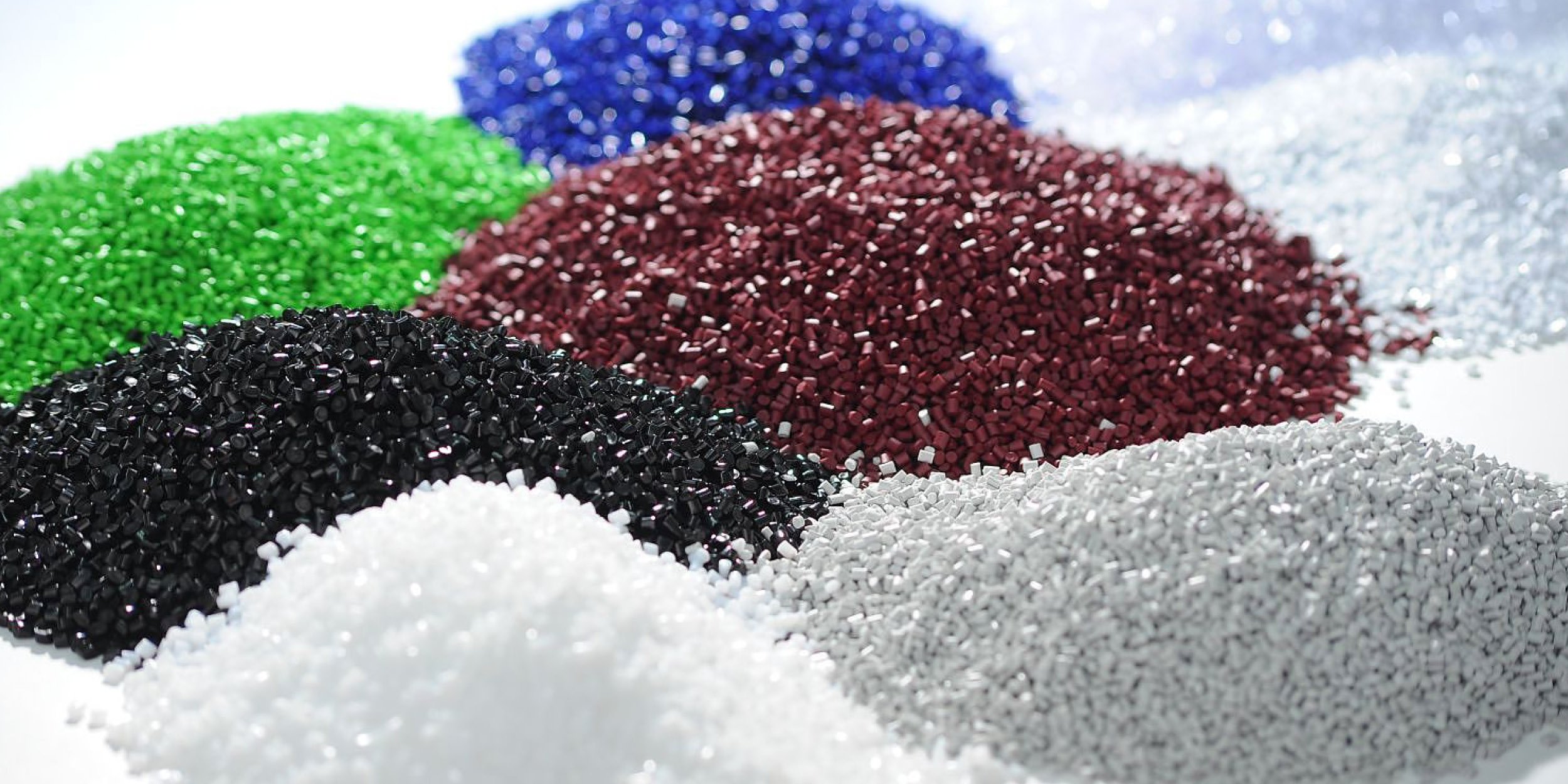
The Mobius loop
The Mobius loop, a triangle of three arrows and is an internationally recognizable and standardised symbol for recycling, where each of the arrows represents one of the steps of recycling: collection, processing and repurchase of the product.
The materials we use at Skaza for injection molding of our own brand products are thermoplastic polymers. Polypropylene (PP) is thermoplastic polyolefin (polymers produced from alkenes) and is a product of macromolecular polymerization of propylene (CH3-CH = CH2), which is recyclable after use (Mobius loop with the number 5). Bokashi Organko 1 and Bokashi Organko 2 composters are mostly made from recycled polypropylene.
The new Bokashi Organko 2 Ocean line is also made from fishing nets, which is recycled polyamide 6.
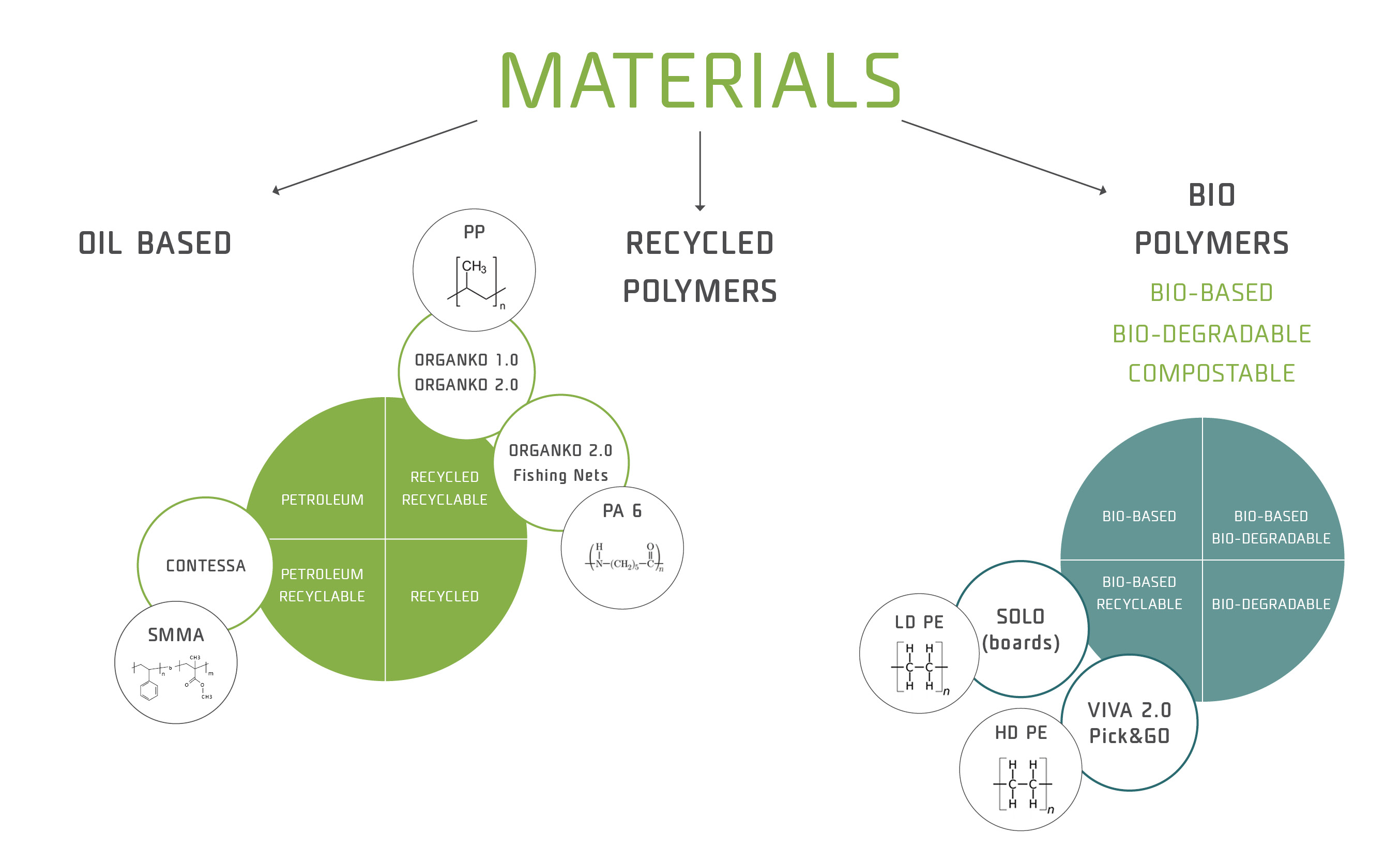
Another material we use is polyethylene (PE), which is the simplest polymer synthesized from ethylene with the chemical composition (CH2= CH2). The innovative Pick & Go set and the Viva 2.0 line are made from bio-based high-density polyethylene (HD PE). The HD PE we use is not oil-based, as the ethanol which is used as the feedstock instead of oil is produced from sugar cane. Bio-based HD PE has essentially identical properties as oil-based HD PE, consequently they can be used and recycled interchangeably.
Materials are the key
While all our materials are suitable for recycling, it is necessary to further separate all products that users have separated in the Mobius loop marked as "other". It is a common misconception that all products marked with the number 7 are dangerous to health because they contain bisphenol A (BPA). It is true that those marked with a 7 also include products made from polycarbonate, whose basic monomer unit is bisphenol A (an organic compound with two phenolic rings), but this is just one of the materials classified under this mark. The Mobius loop no. 7 also includes all other polymers that are not labelled with the first six marks, as well as polymer mixtures that cannot be classified under any of the other six options.
At Skaza, we do not use polycarbonates, for products that come into contact with food and drinks, and all our products that are suitable for contact with food and drinks are "BPA free" and "melamine free".
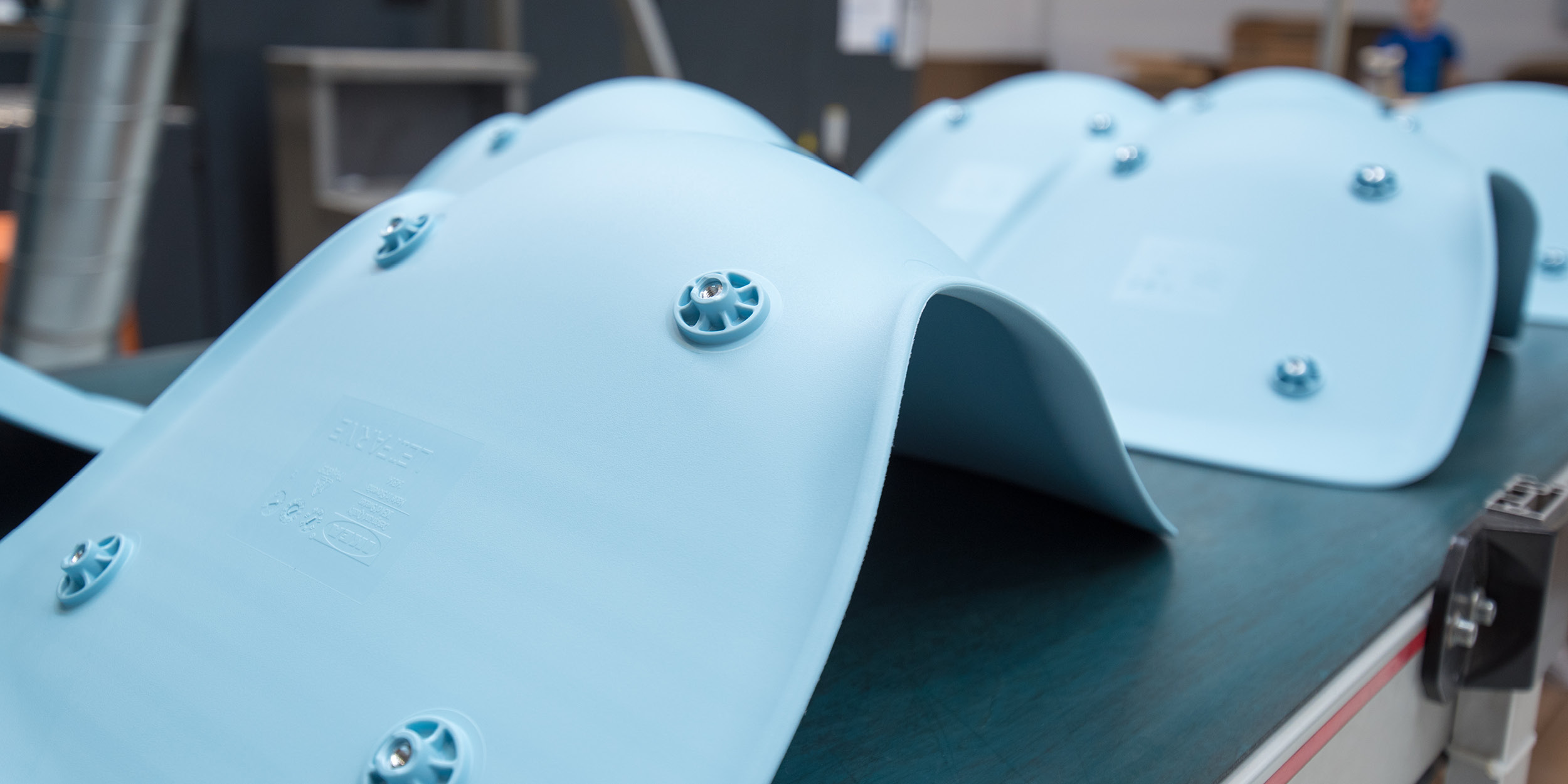
All of the products of our own brand are sent for testing to an independent accredited laboratory (usually abroad), where in addition to standard durability tests, they also perform migration tests. The results of these assure us, and our users, that all our products are suitable for contact with food and drink and are harmless to health. In addition to the overall migration of plastic substances into food and beverages, we are particularly focused on testing the migration of phthalates(1), heavy metals, BPA and some other harmful substances, as this is the only way we can say with certainty that our products do not contain these substances and are not harmful to health.
In addition to making sure that our products are made from environmentally friendly materials, we also ensure that their use is pleasant, that they have an extended service life and at the same time that the products are recyclable after the end of their use. Skaza strives to change people's habits, both with our products and the actions that can be taken at the end of their useful life. It is important to separate them properly and not just throw them into the environment, as ordinary plastics take hundreds of years to decompose and are, in addition to being a pollutant to the environment, also dangerous to animals who mistake them for food. Plastic products can also find their way into agricultural machinery and cause injuries, damage and inconvenience. At the same time, pieces of plastic can get into animal feed, which ultimately leads to people consuming them through the food chain.
At Skaza, we are committed to ensuring that all our products are recyclable after use and that we can turn a used product into a new product.
Branka Viltužnik, PhD, Head of Research and Innovation
(1) Phthalates: volatile liquids, which are added to polymers in plastics to increase their flexibility. They are also known as softeners or plasticizers.
Find out more about how we incorporate sustainable materials into our production process. Fill in the form and download the e-book with educational content.

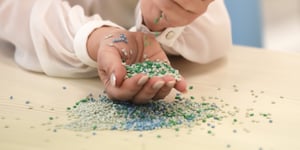
-1.jpg?width=290&name=viltu%C5%BEnik%20branka%20(3)-1.jpg)